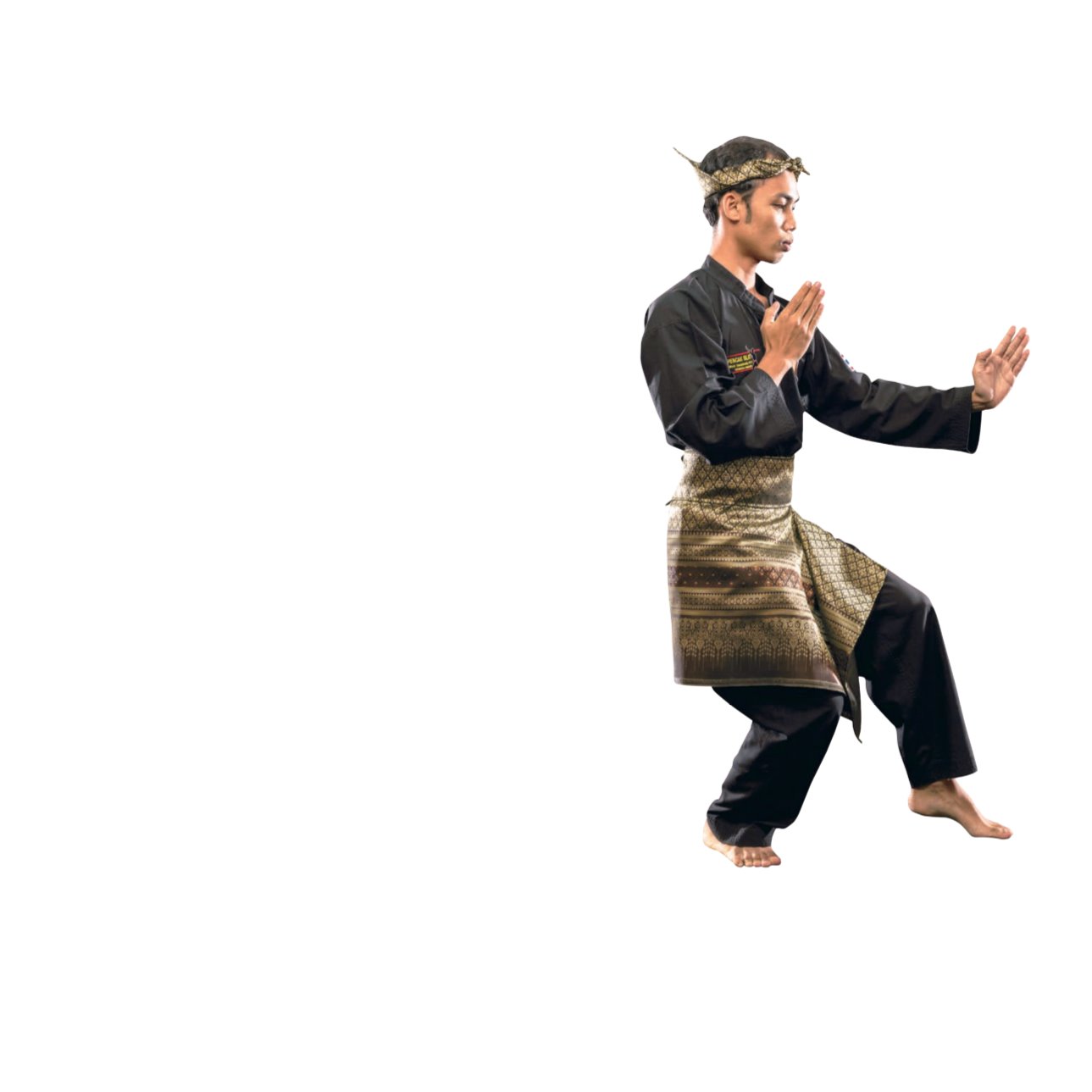

186
|
Culture Ways of Life and Wisdom
Silat
Martial Arts of the South
Martial arts for self-defense originated from the need of survival and safety
based on the lifestyle of each locality, Silat is one of ancient martial arts popular
among Thai-Muslim communities in the Southern provinces of Thailand: Satun,
Pattani, Yala, Narathiwat and Songkhla. Its name variations are based on local
preferences, such as Sila, Buedika, or Silat.
The fundamental fighting of Silat is a dance with bare hands that emphasizes
on elegant choreography. Originally practiced in warfare, Silat is performed with
a use of weapons such as Kris and Krabi (sword). Later, when the armament is
more scientifically advanced, the importance of Silat in wars was diminishing and
developed into a sport for physical exercises and martial arts for self-defense as
of today. Its choreography is filled with stances and dance moves that show the
muscle strength of arms, legs, and also the use of the fingers to move in line with
the song’s melody. The performance is often arranged at the Hari Raya (Muslim’s
annual festival that Thai-Muslim people will return home to visit parents, relatives,
neighbors to beg for forgiveness to each other in the past), Khao Sunat ritual (Islamic
male circumcision), annual event after harvest season, as well as formal ceremonies
such as a ceremony welcoming guests of honor.
• Malay Martial arts sculpture at Borobudur in Indonesia
“
Silat is regarded as charming martial
arts by its strong dance moves that
reveal the muscle strength of arms and
legs, and the stylish waving fingers.
The performers also have the elegance
of wearing ancient-style Malayan
military costumes.
”


















